A curious order of events

I had a bit of an odd musical journey. Most kids go from Fur Elise to Eruption; I went from Eruption to Fur Elise. After 39 years of life, I have not yet encountered a single person who has approached their musical career from the same direction as myself, a journey from metal to Mozart. The majority of classical piano teachers, in their youth, get introduced to the formal study of music by an authority figure. This usually would have come in the shape of private lessons prompted by the parent or from required electives at school. I had no parental prompting or school influence in my initial musical development. I began my musical exploration in the typical way most school kids do— through the culture of my peer group. Growing up in the late 80’s and early 90’s meant being heavily influenced by heavy metal and guitar driven riff-rock. Learning Guns N’ Roses and Van Halen note-for-note on the guitar is how I began my journey; teaching students how to properly phrase a melodic figure in a Mozart sonata was where it led me. The curious order of events cataloging my musical upbringing offers unique insight into how the psyche develops an intimate relationship with art, and more specifically, music.
Secondary School
It started with the Best Catalog which my mother subscribed to. In the magazine, while searching for the toy section, I fell upon a picture of a cool looking guy doing a “windmill” strum on a blue electric guitar. It captivated me. I wanted one. Not too long after pointing to the picture in front of my mother and giving a sales pitch, I found myself strumming vigorously the open strings of an $80 electric guitar. The sound of the amplified instrument alone gave me a thrill. Such noise!
 The next phase was my infatuation with the band Kiss, which was put into motion by my childhood friend Ben. There was no actual music played—just lip-syncing, face painting and posturing with instruments. The British metal band Iron Maiden hooked me with their iconic mascot “Eddie” who graced the cover of virtually every album they put out. My mother would black out all the lyrics inside the cassette-case insert with a marker, which was a bit odd to me because there was no profanity in any of the songs. I guess she took one look at Eddie and decided to take preemptive action. Her decision to censor the lyrics, however, was a clear signal to me that this music was indeed for me and not for her; not for adults. I felt an immediate connection to the material. It was loud, it was defiant, and parents didn’t approve of it. My friend Ben had to actually hide all of his Iron Maiden albums from his mom.
The next phase was my infatuation with the band Kiss, which was put into motion by my childhood friend Ben. There was no actual music played—just lip-syncing, face painting and posturing with instruments. The British metal band Iron Maiden hooked me with their iconic mascot “Eddie” who graced the cover of virtually every album they put out. My mother would black out all the lyrics inside the cassette-case insert with a marker, which was a bit odd to me because there was no profanity in any of the songs. I guess she took one look at Eddie and decided to take preemptive action. Her decision to censor the lyrics, however, was a clear signal to me that this music was indeed for me and not for her; not for adults. I felt an immediate connection to the material. It was loud, it was defiant, and parents didn’t approve of it. My friend Ben had to actually hide all of his Iron Maiden albums from his mom.
By seventh grade I had actually signed up for guitar lessons. The local music store was a fascinating place to walk around in. The electric guitars were so cool looking; they were blue, red, green, shiny and sparkly and they hung in vast numbers all around the walls of the store. From the back of the store, in the area where they taught lessons, I could hear screaming metal licks and distortion driven technical acrobatics being hammered out on guitar. The sound would stop and soon after would appear some cat with long hair and ripped jeans. “That must be my teacher!” Nope, my mom signed me up with an old guy who gave me a method book and started teaching me how to read Hot Cross Buns and Mary Had A Little Lamb. I lasted three lessons.
Back in school, some of my peers had picked up the guitar and could strum out some basic chord progressions and play a few simple Led Zeppelin licks. My friend Brian had a father who could play some classic rock on the guitar and passed down that knowledge to him. Brian taught me all the basic open chords. Soon we were playing all the Led Zeppelin songs together, including Stairway to Heaven which was very popular that year (this was before Wayne and Garth told us we couldn’t play it anymore)
Master of Guitar
I significantly increased my stewardship of the instrument throughout the rest of junior high by buying all the guitar tab books I could find and memorizing hundreds of signature licks and solos. Opening each book was like opening a treasure chest which contained the secrets of the universe in it. Hearing the riffs I liked, and then seeing how they were actually executed on the guitar was absolutely exhilarating for me. I spent all night playing and practicing. By high school I could play anything—Hendrix, Yngwie, Satriani, Vai, you name it. I was having an absolute love affair with the instrument. Becoming excellent at the guitar became my number one priority in life. Grades and school work were secondary. 
I was flying in a blue dream. I could stay in my room for hours on end and be in such a state of focus that I would literally drool on my fret board while playing. My friends and I used to spend hours in our cars listening to music. This ritual was and continues to be one of the staples of male bonding. We’d park our cars, open the doors and sit on the hoods while the rock music pumped out of the speakers. The music and orchestration thereof would be discussed and various parts would be analyzed to determine what was so appealing about it. There was a sense of ownership over the material we listened to—of course we didn’t write it ourselves, however in a sense it belonged to us. It was the soundtrack of our teenage experience; it was specific to our time and place in the universe.
Instrumental guitar rock, which matured to perfection in the early 90’s, consumed the free time of legions of musicians that I grew up with who established an entire way of life around mastering the craft of the electric guitar. The fact that our efforts to harness the energy of this style of music went largely ignored by our music teachers both in middle school and high school reinforced the presence of a seismic rift separating two worlds; the world of kids and the world of “academic intellectuals.” The awareness of this phenomenon weighed heavily on my ability to relate on a personal level to any music deemed “sophisticated” by academia.
I couldn’t help but get the vibe that there was a general contempt for pop music in academic circles. Maybe it was because one of my music teachers in high school said that he “hated electronic instruments.” I even recall a time when the choir teacher at one of the local high schools hosting a talent show called the police on us when we were practicing in the auditorium one afternoon. The cops actually came in with dogs to see us off (in a twist of fate I actually ended up working with that guy 13 years later as a student teacher. He thought I was outstanding and gave me a great recommendation. I never brought up the fact that thirteen years prior he kicked me out of his auditorium with police dogs).
Even though harmony and melody were pleasing to me in any musical context, there seemed to be a wall of mental blocks erected by the snobbery of academics when listening to any Western music composed prior to the 20th century. It was nice and all, but it just didn’t speak to me. I assume it didn’t speak much to my guitar playing friends either—except one.
Glee Club
 My friend Brian talked me into joining choir during my sophomore year of high school. He seemed to fancy some of the material they were singing and promised me that it would be pretty cool to be in the bass section together. I joined up because he was in it and also because it seemed like an easy way to get a fine arts credit. It was easy, although, there was a learning curve. Brian had a knack for following the score and coming in on the right pitch; I often got lost and was always fishing around for my starting pitch at the beginning of each section. I soon figured out how to memorize pitches relative to the key center in a major scale. Per Brian’s advice, I just numbered the scale degrees 1-7 and drilled each pitch in relation to the tonic. Voila! Now I had a new skill to develop and master. As time went on, the pitch intervals became crystallized in my musical memory, each one radiating a distinct sonic color which began to be easily recognizable.
My friend Brian talked me into joining choir during my sophomore year of high school. He seemed to fancy some of the material they were singing and promised me that it would be pretty cool to be in the bass section together. I joined up because he was in it and also because it seemed like an easy way to get a fine arts credit. It was easy, although, there was a learning curve. Brian had a knack for following the score and coming in on the right pitch; I often got lost and was always fishing around for my starting pitch at the beginning of each section. I soon figured out how to memorize pitches relative to the key center in a major scale. Per Brian’s advice, I just numbered the scale degrees 1-7 and drilled each pitch in relation to the tonic. Voila! Now I had a new skill to develop and master. As time went on, the pitch intervals became crystallized in my musical memory, each one radiating a distinct sonic color which began to be easily recognizable.
Singing 16th and 17th century counterpoint was surprisingly engrossing. I started to notice all kinds of pleasing sonic relationships happening around me between different sections of the choir. These relationships were further compounded by the interplay between the choir and the accompaniment. Layer upon layer of harmony and melody began to unfold with each month of choir that passed.
My choir teacher, Mr. Kessler, wore his heart on his sleeve. I can’t thank him enough for being emotionally vulnerable in front of his students. He never missed a chance to tell us that he “CARED ABOUT THIS MUSIC!”–a statement which usually occurred after an epic meltdown of frustration with someone’s behavior. He was notorious for sending chairs flying across the room in fits of rage and he once almost took out the piano accompanist with a folder when he most efficiently cleared his podium of all sheet music in a sudden attack of anger after hearing the tenor section screw up.
But when we pleased him, when things were going right, the fulfillment, the satisfaction emanating from his usually poker-face countenance was palpable. He couldn’t hide it in the same way that he couldn’t hide his anger and disgust. As a 16 year old, observing his relationship to the music in real-time gave the material that touch of humanity that I needed to witness. The proper execution of what he found beautiful was to him, hands down, the most important aspect of his job. In those moments, he wasn’t a teacher, he wasn’t an adult, he wasn’t an ‘academic”, he was just another musician, like myself, who was striving to express something. And in those moments, generational gaps melted away, and it was clear as crystal that we were cut from the same cloth.
Merging Metal & Mozart
High school choir was one of the biggest catalysts for me in my musical development. As chance would have it, the three years of high school that I sang in the choir were also the first three years of my dating life. The emotional roller coaster rides of a series of romantic relationships definitely contributed to the poignancy of emotions I felt while experiencing this new music. I was wrestling with new emotions as a human being while at the same time being saturated with secular Renaissance music which was sensuous, complex, and often very sexually suggestive. The Madrigal became my favorite choral genre and I even joined an elite singing group that specialized in this kind of music. But there was still something missing. That sense of ownership over the music, the sense that it was for me and not for “them”, had not quite arrived yet. There can be no legitimate love affair between two people if a third-party is involved. The same can be said of the relationship between a man and his art. The middleman, the intermediary, has to be absconded. For me, that middle man was academia.
 The final piece of the puzzle came one day while listening to a Joe Satriani album in the car with my friend Brian (yes, it’s always Brian). We, as usual were listening to one of our favorite tracks from the above mentioned guitar player and Brian pointed out how a similar aesthetic to what we were listening to can be found in Beethoven’s ninth symphony. He was referring to the often cascading “legato” nature of much of Joe Satriani’s guitar playing. In the next instant we were listening to the booming voice of the bass soloist at the opening of the choral section in the fourth movement of the symphony. Brian flipped through some of the many beautiful passages in the 4th movement while offering up a play-by-play commentary on what moved him about this or that. He might as well have been playing air-guitar to the orchestral music which was now blasting out of my car stereo. I felt a tingling sensation trickle through my body. Suddenly a switch flipped. I recognized, or should I say felt, that this music was written for me, for my ears. These sounds were for me to consume, interpret, and critique. Not academics, not my teachers, not my parents, but me. In that instant I had just inherited the rest of western music prior to the 20th century. Thanks Brian!
The final piece of the puzzle came one day while listening to a Joe Satriani album in the car with my friend Brian (yes, it’s always Brian). We, as usual were listening to one of our favorite tracks from the above mentioned guitar player and Brian pointed out how a similar aesthetic to what we were listening to can be found in Beethoven’s ninth symphony. He was referring to the often cascading “legato” nature of much of Joe Satriani’s guitar playing. In the next instant we were listening to the booming voice of the bass soloist at the opening of the choral section in the fourth movement of the symphony. Brian flipped through some of the many beautiful passages in the 4th movement while offering up a play-by-play commentary on what moved him about this or that. He might as well have been playing air-guitar to the orchestral music which was now blasting out of my car stereo. I felt a tingling sensation trickle through my body. Suddenly a switch flipped. I recognized, or should I say felt, that this music was written for me, for my ears. These sounds were for me to consume, interpret, and critique. Not academics, not my teachers, not my parents, but me. In that instant I had just inherited the rest of western music prior to the 20th century. Thanks Brian!
College

I wasn’t a college type of kid and I certainly had no business trying to thrive in an environment where in order to succeed you must genuinely be interested in or at least feint interest in what your professors are talking about. What seemed to be important was just getting that official piece of paper at the end of four years that vouched for the fact that I had the intelligence to make it through college.
By my third year at the university I had enrolled in a major which would set me on a path to graduate with absolutely no marketable skills for flourishing in the real world. That major was Music Theory and Composition. The selection of this course of study was mainly the result of the momentum generated in high school (I had taken an advanced music theory course and loved it) as well as the inability to take affection to much anything else. You would think that I would be overtaken by a fiery passion for this particular major because of my history so far, but surprisingly I was often overcome by a sense of apathy towards it—institutional education has a way of doing that. I got through the program, graduated, and was happy to get out of there. I maybe had two or three classes in my entire college career that I actually enjoyed, none of which was music related.
My two greatest achievements during those four years in Boston were picking up competitive amateur boxing and getting turned on to the piano.  Since the former seems to be completely out of left field, I’ll just stick with the latter, my imminent love affair with the piano.
Since the former seems to be completely out of left field, I’ll just stick with the latter, my imminent love affair with the piano.
My roommate Steve had a keyboard in our dorm room. He would play only the first 16 bars of a Chopin piece over and over again while talking about how difficult it was. I remember hearing that entire piece for the first time one afternoon in the room. Steve, cued it up on his CD player and we listened to it a couple of times over. The “Fantasie” Impromptu, as it is known, is famous for its use of the 4 against 3 rhythm in its opening theme. This compositional device enables the melodic figure played by the right hand to effectively detach itself from the meter and float above and away from the left hand arpeggios. In other words, it’s pretty cool sounding. Unfortunately for Steve, but fortunately for me, he never got past those first 16 bars, and this is why I decided to sit down one day, open up the score, and pluck out the piece very, very slowly.
I could read music. I played violin in middle school and had a piano at home which I played around with (it was originally bought for my sister). But this didn’t mean I was going to be able to get through Chopin’s Fantasie Impromtu anytime soon. It took me practically an entire year to decode and memorize the piece. But the journey was great. Playing a fast, flashy piece of music in slow motion, which is the only way I could play it for months, has its own charm. When you play a complex piece very slowly, we’re talking about 1/4th the performance tempo, you experience the relationships between the notes very differently. It gives you time to absorb everything that’s going on.
As each measure got decoded, as each group of black dots on the page got transformed into sound, my affection for the piano grew. The excitement, the anticipation, the revelation of seeing how what I enjoyed listening to was actually put together was just as magical as those days in my bedroom when I was younger. It was the second coming of those same emotions I felt 7 years earlier in my life with the electric guitar. But this time, it had a complexity several magnitudes beyond the music I was into then. The best part was that I didn’t need a band, I didn’t need a choir or a string ensemble; I could sit there at the piano and be an orchestra all by myself! I was hooked, and at age 21, and with around 250 years of piano and keyboard music to discover, I wasted little time in recruiting my first teacher.
Metal to Mozart in Harmony: Franklin Music Academy
Fast forward almost 20 years and here I sit typing this blog post. Much has occurred since I graduated from college to get me to where I am now but the details of those next two decades are not within the scope of this article. I’ll say a few things about that expanse of time though. My first piano teacher was the greatest music teacher I ever had. His passion, his intensity, and most importantly his love for humanity, radiated from each complement, technical directive, or critical lashing he sent my way during our time together. He was a one-of-a-kind and I was lucky to have met him. Another piece of information about that time period is that I worked my ass off to achieve the competence and technical proficiency on the piano that I now enjoy. I pursued piano proficiency like a crazed maniac and I was so obsessive about it that I would often find myself on the verge of tears out of frustration if things weren’t going my way. Conquering my demons would pay off though, with 20 times the return.
 I now work for myself. There is no boss other than my wife and the people who pay me to teach their children. I have advanced skills in more than one instrument and can take students from A to Z on several instruments while exploring several different styles of music. I’m one of a few teachers, if not the only one, that you can find on one day teaching someone how to properly execute a screaming guitar solo and on the next day teaching that same student how to execute with grace and passion the opening theme of a Mozart sonata. It’s almost impossible for me to get bored.
I now work for myself. There is no boss other than my wife and the people who pay me to teach their children. I have advanced skills in more than one instrument and can take students from A to Z on several instruments while exploring several different styles of music. I’m one of a few teachers, if not the only one, that you can find on one day teaching someone how to properly execute a screaming guitar solo and on the next day teaching that same student how to execute with grace and passion the opening theme of a Mozart sonata. It’s almost impossible for me to get bored.
My number one priority as a teacher, is to never let the “middle man” descend between my students and the music they are experiencing. I meet them where they’re at and show them things that perhaps they wouldn’t be able to uncover on their own. I am to them what Brian was to me growing up; A guide, simply bringing things to their attention.  “Look at this”, “watch that”, “listen to this.” That is my approach. They may come to me with Taylor Swift, but they’ll leave me with Prokofiev— if they come with Prokofiev I’ll have them leaving with Taylor Swift (not likely though).
“Look at this”, “watch that”, “listen to this.” That is my approach. They may come to me with Taylor Swift, but they’ll leave me with Prokofiev— if they come with Prokofiev I’ll have them leaving with Taylor Swift (not likely though).
The best part about it, is that they can do it all. They can have their cake and eat it too. My students partake in both traditional recitals as well as more contemporary forms of musical performance, such as rock concerts, which I hold on an annual basis. They play alone, they play in duets, and they play with a band.
I hope to raise a generation of amateur musicians who don’t let what generation they’re born into determine what music they relate to. This experiment has been an overall success so far but I often think of where I’d be if I started on this path 10 years earlier. But I can’t have any regrets of course, for without the past I couldn’t have the present, and I’m quite fond of my present.
This blog will chronicle all of the trails and tribulations I have experienced since graduating college to get me to where I am now. If you found it pleasing to read or perhaps useful or applicable to your own life, then please subscribe. Thanks for reading!

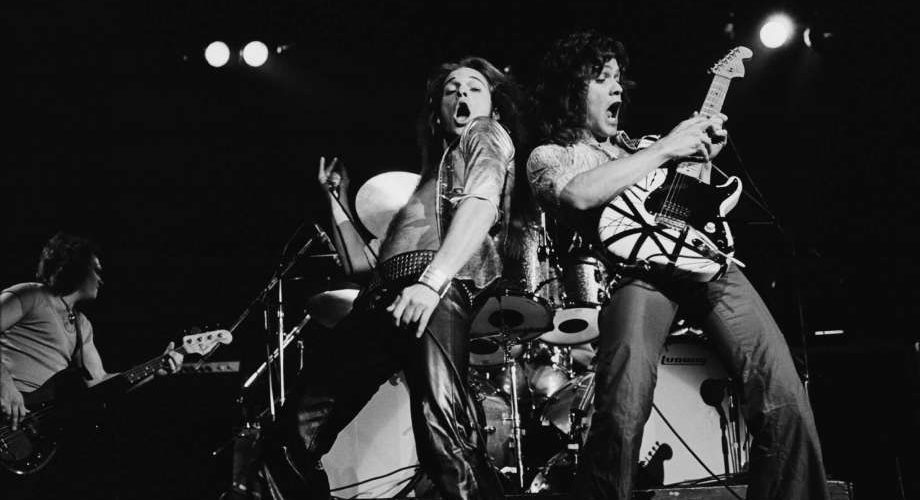
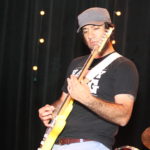
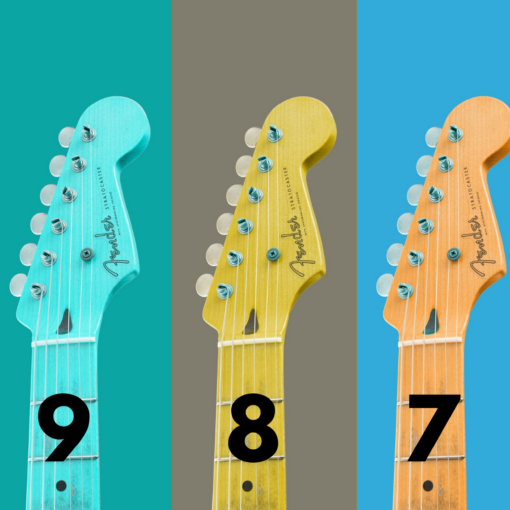
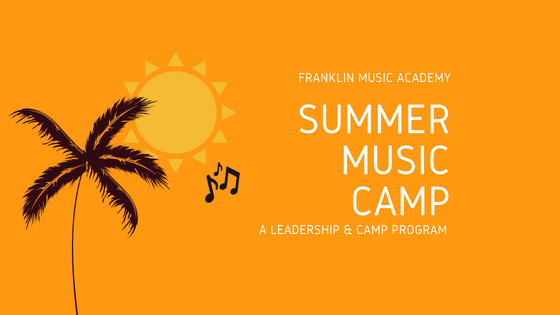
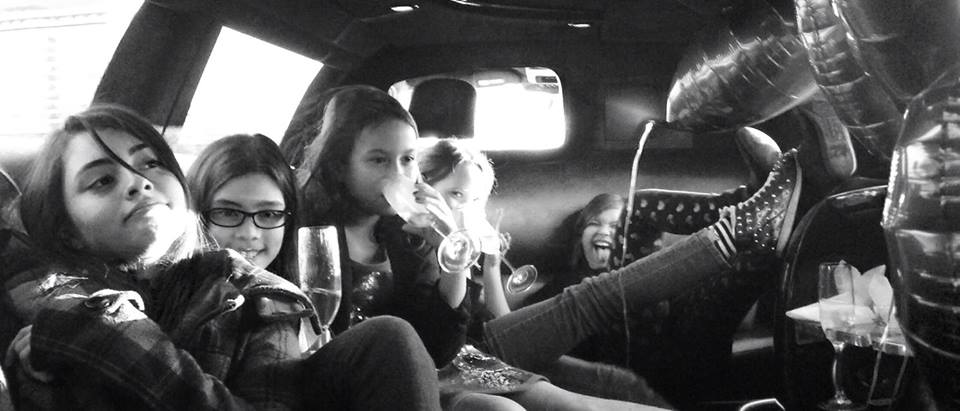

One thought on “Metal to Mozart – One Teacher’s Journey”